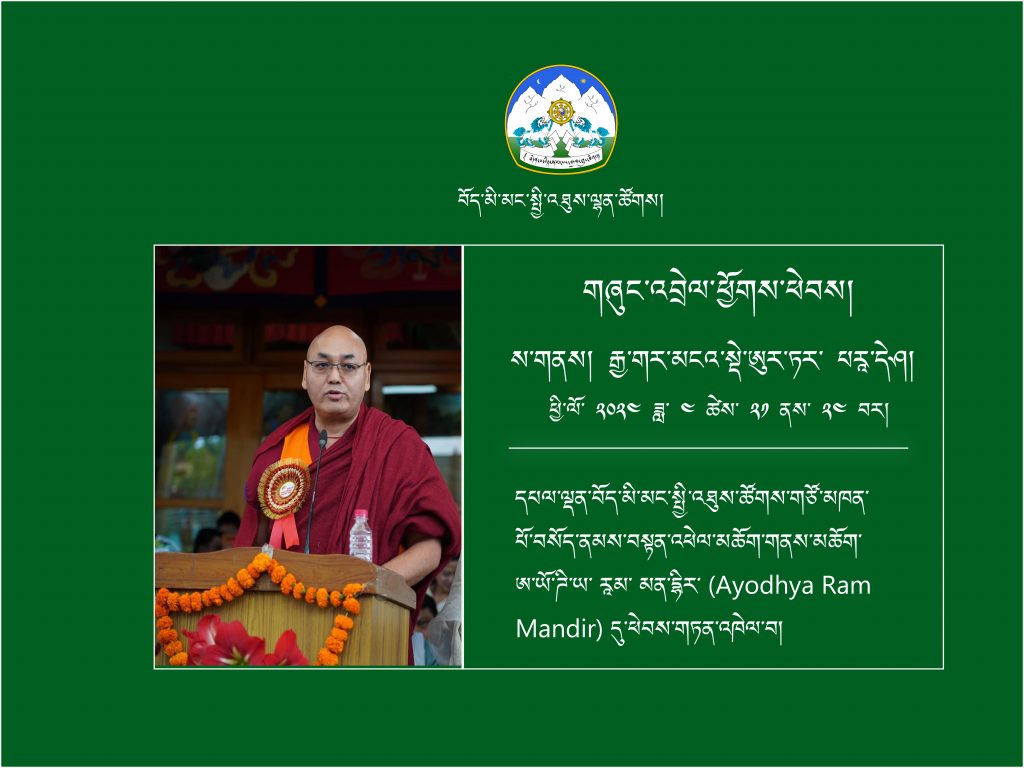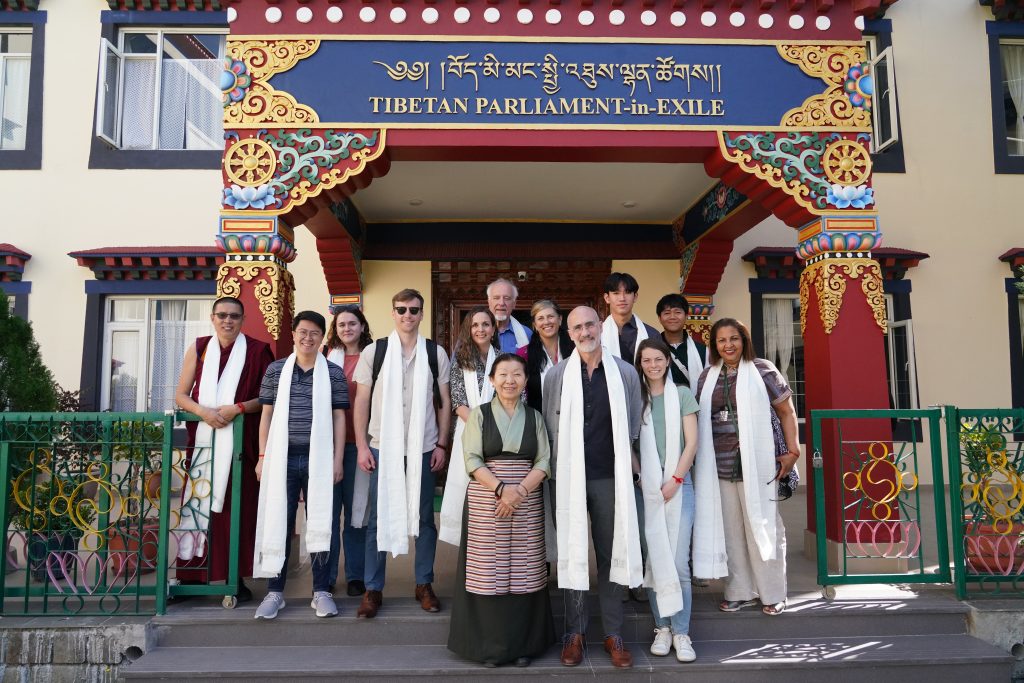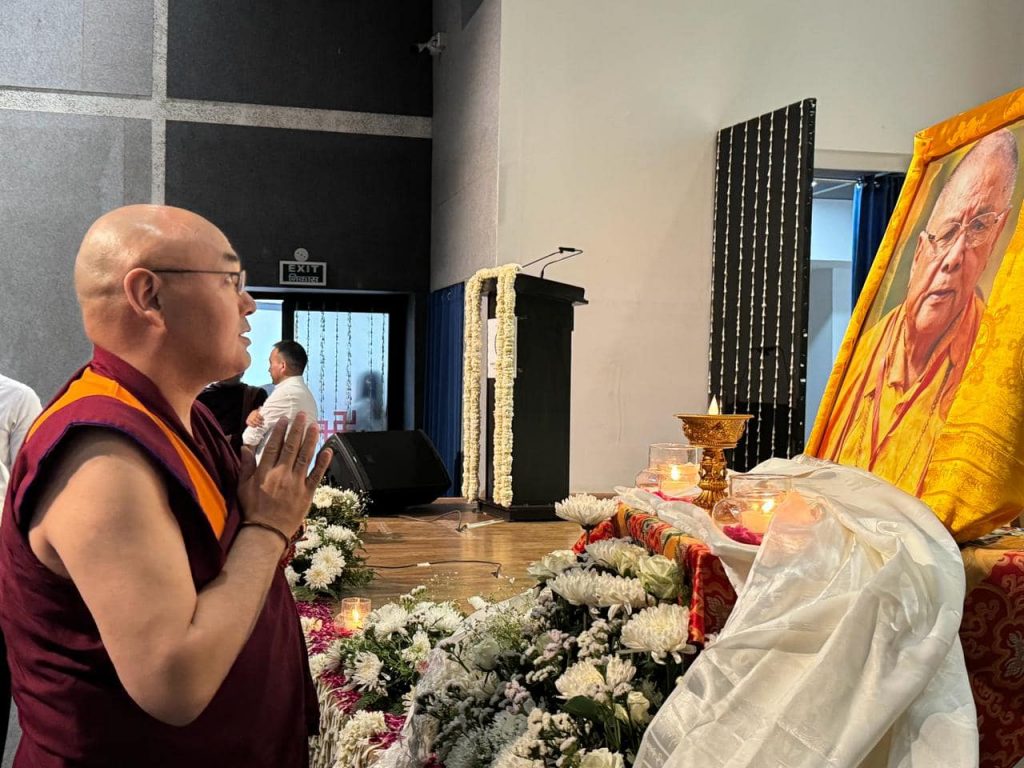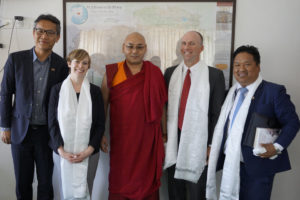
Dharamsala: Following their official program, Ms. Jennifer Cole, PRM Program Officer, U.S. State Department (Washington, DC), Mr. Alex Ave-Lallemant, Regional Refugee Coordinator, U.S. Embassy, Kathmandu, Nepal, Mr. Pema Tenzin, Refugee Program Assistant, U.S. Embassy, Kathmandu, Nepal and Mr. Kelsang Dorjee Aukatsang, SARD Director, CTA visited Tibetan Parliamentary Secretariat this noon at 12:15 pm.
Upon their arrival, they were taken for a quick-guided tour to the Tibetan Parliamentary Hall, wherein, they were introduced to the composition and the functions of the Tibetan Parliament-in-Exile.
Thereafter, they met with the Speaker of the Tibetan Parliament-in-Exile, Khenpo Sonam Tenphel, who greeted them and welcomed them to the Parliamentary Secretariat. During the meeting, he expressed his gratitude on behalf of all the Tibetans for their steady aids in the facilitation of various life-sustaining amenities. He also briefed them on the situations inside Tibet,in particular about the dwindling number of monks and nuns in monasteries within the three provinces of Tibet under the repressive polices adopted by the Chinese government. Citing the invasive policies by the Chinese government, he said, ‘It was relatively little more relaxed in the mid 1980s. However, after 1997, the Chinese policies became more stringent and repressive. For instance, in some monasteries, instead of allowing the newly identified ‘tulku’ to follow the traditional monastic education, they were compelled to attend regular schools under the official decree by the Chinese government.’
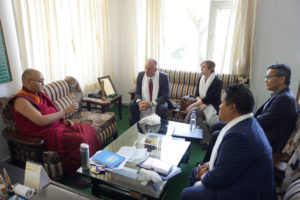
Upon inquiring the Speaker on the responsibilities that the Tibetan Parliament-in-Exile is most focused on, he said, ‘Our Parliament being established in exile is extraordinary in itself. It plays different roles. Sometimes the Parliament assist the executive body..i.e., the Cabinet by supporting it yet sometimes, challenge it by raising questions and holding them accountable for their actions, which is a unique responsibility of this Parliament. It also has the legislative responsibility of enacting laws, framing new rules and regulations for the Tibetan administration in exile as well as its amendments. In particular, Tibetan Parliament liaises with the members of parliaments from different parts of the world and partakes in the political activities of advocating Tibet’s issue and Tibetan struggle movement all over the world. For instance, delegations of our parliament meet with members of parliament from different parts of the world and elucidate them on the Tibet’s issues. The parliamentarians also visit Tibetan settlements in India, Nepal and Bhutan periodically to assess grievances of the general Tibetan public and apprise the same to the concerned department under the Kashag thereafter.’
When asked about the issues faced at Tibetan settlements, Speaker stated that there is a drop in the number of youth staying in the Tibetan settlements as well as Tibetan residents engaging in the agrarian activities, however, there is a steady progress in terms of education and health of the general Tibetan public. ‘In early days of our exile, the literate Tibetans were mostly from the clergy class as they had formal monastic education and majority of the lay Tibetans were illiterate. However, the younger Tibetan generations now are mostly literate and brought up studying modern education. The pattern of migration of the Tibetan youths from the settlements to the nearby urban areas or overseas owes to the lack of economical sustenance and limited opportunities. So, lots of issues has been raised on how to reverse this kinds of migrations.’
‘If projects pertaining to commercial pursuits that resonate with the interest and educational qualification of the Tibetan youth could be implemented at Tibetan settlements, it would definitely contribute in arresting such migration and stabilize it,’ said the Speaker when he was asked how to reduce such migration, adding that, it needs further and more comprehensive research before initiating with such projects though.’
